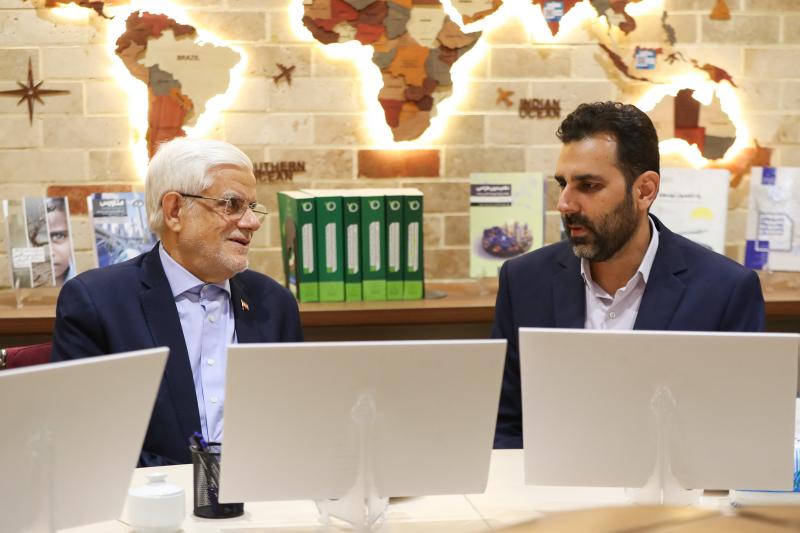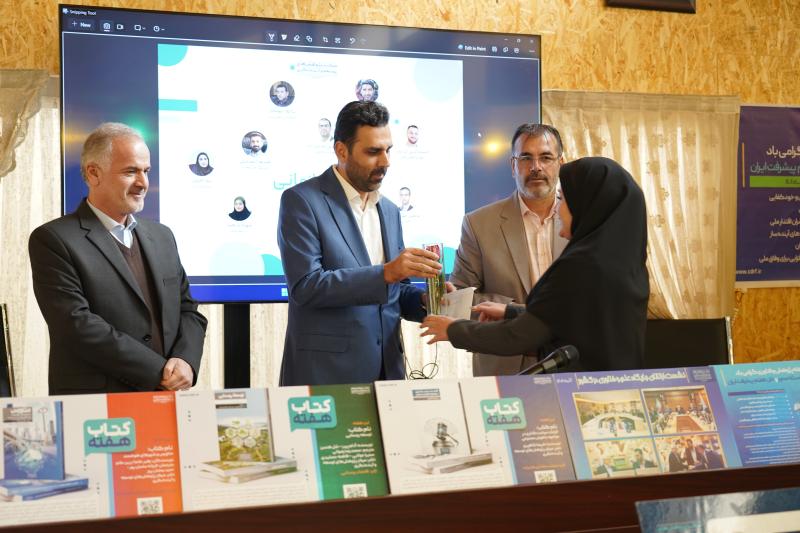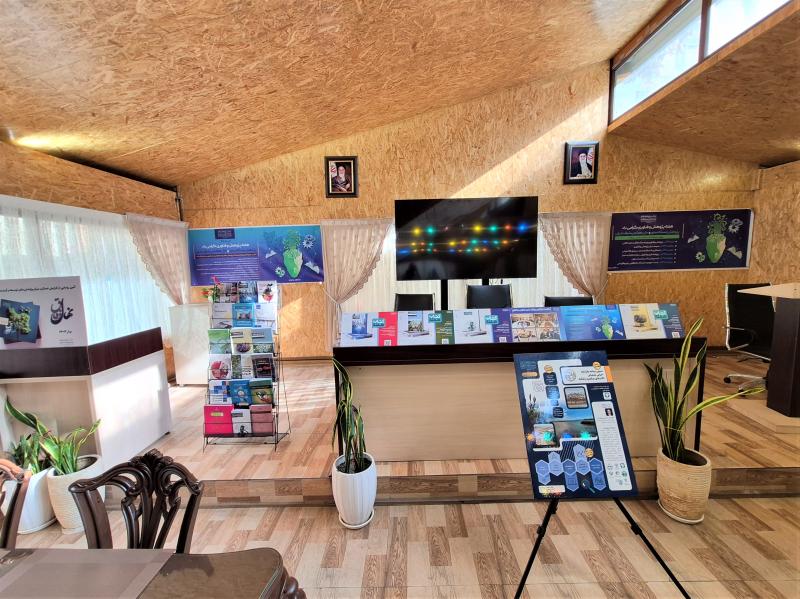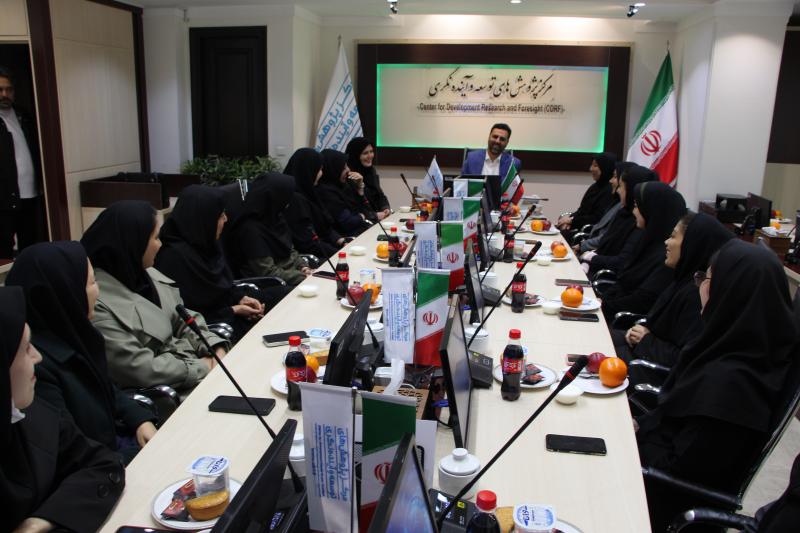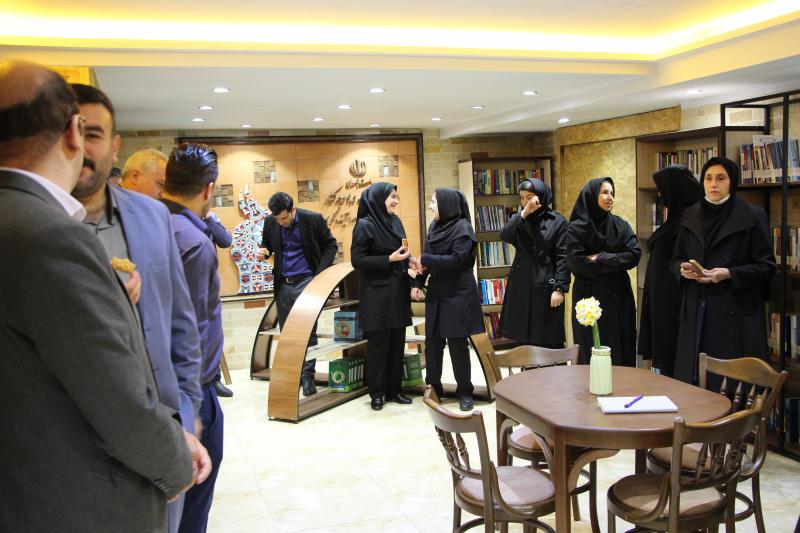
-
بررسی آییننامهها و دستورالعملهای برنامه هفتم پیشرفت
-
بررسی عوامل موثر بر افزایش تصادفات و تلفات جادهای و سوانح رانندگی و دادهکاوی تلفات انسانی
-
سازماندهی و بازآرایی فضایی آموزش عالی کشور
-
به روز رسانی سند ملی آمایش سرزمین
-
انجام مطالعات مناطق آزاد به عنوان نواحی پیشران اقتصادی کشور
-
اصلاح ساختار بودجه و پیاده سازی نظام یکپارچه مدیریت اطلاعات مالی دولت (IFMIS)
کلید واژه : Water
تعداد اخبار : 28
.jpg)
Agricultural Sector Achieves Significant Growth, but Challenges Remain
The scientific conference titled "The Role of Balancing Production and Consumption of Agricultural Products in Controlling Inflation" underscored the significance of food security and self-sufficiency. It emphasized the urgency to augment investment in the agricultural sector and the imperative to establish a comprehensive production chain for agricultural products..jpg)
Public-Private Partnerships in Land Development: Key Figures Discuss Pressing Issues
In the specialized conference titled "The Model of Public-Private Partnership in Land Development", it is stated that Public-Private Partnerships (PPPs) are essential for meeting the world's infrastructure needs, but face challenges such as financing, maintenance, and planning. Governments play a crucial role in PPPs by fostering a collaborative environment, building capacity, and providing transparent policy-making and necessary financial resources. In Iran, PPPs are still in their early stages, and the government needs to address challenges such as lack of interest from executive agencies and absence of a comprehensive approach..jpg)
CDRF Conference Discusses Planning-oriented Governance for Water, Food, and Farmer's Livelihood Security
The Center for Development Research and Foresight (CDRF) held a conference on planning-oriented governance for water, food, and farmer's livelihood security. The conference speakers discussed the importance of agriculture in land use planning, the three pillars of food security, and global challenges to food security. They also defined land use planning and food sovereignty, and emphasized the importance of sustainable farming practices. The CDRF conference highlighted the critical role of agriculture and food security in land use planning. The speakers discussed the challenges to food security and the need for sustainable farming practices. They also emphasized the importance of empowering producers and consumers with control over the production, distribution, and consumption of food.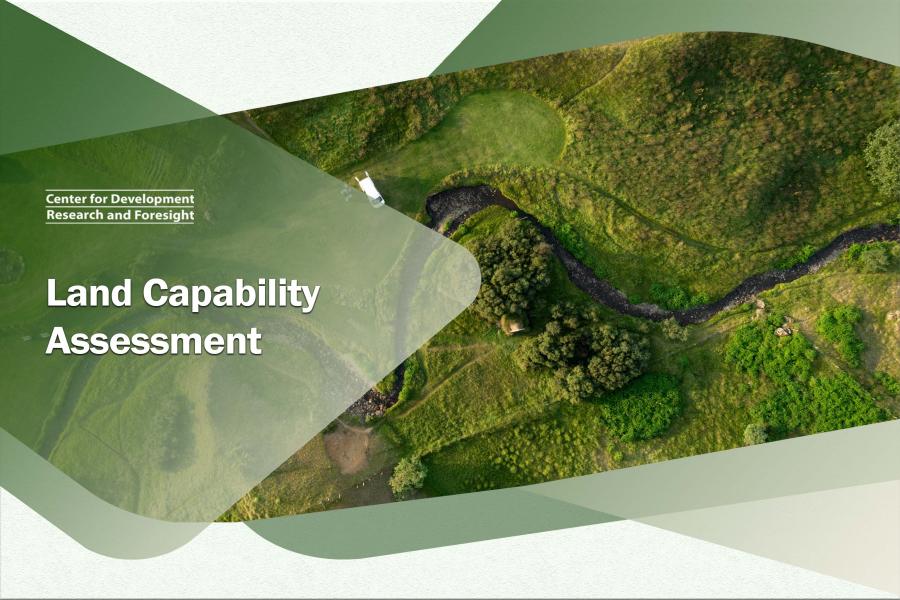
Land Capability Assessment
Environmental management is a crucial response to the crisis caused by rapid economic and social changes that affect the environment. Some of these challenges are global pollution, biodiversity loss, soil erosion, and urban sprawl. However, the pace of environmental monitoring, analysis, and planning has lagged behind the emergence of these problems.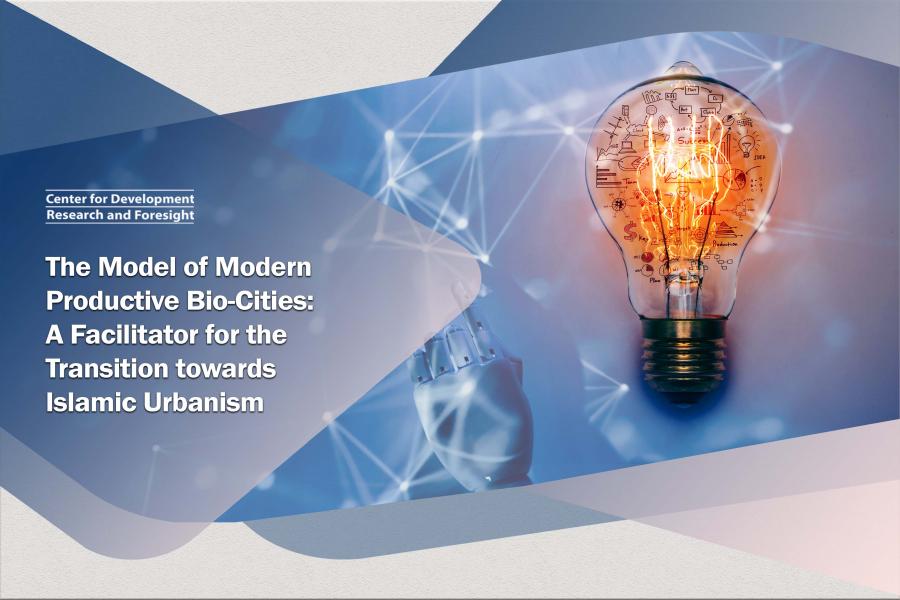
The Model of Modern Productive Bio-Cities: A Facilitator for the Transition towards Islamic Urbanism
The physical infrastructure is recognized as a crucial component of national development. The generative bio-city concept offers a synergistic approach to addressing housing, employment, population, and lifestyle challenges within a socio-cultural framework. This model aims to address pressing issues such as land scarcity and ownership, providing affordable housing, achieving regional balance in land use, and preserving intimate and harmonious spaces within homes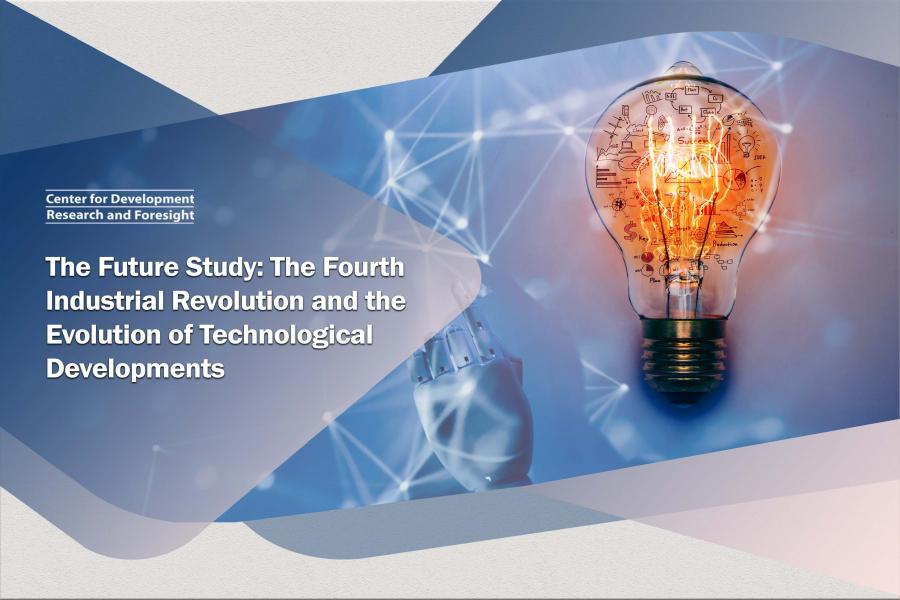
The Future Study: The Fourth Industrial Revolution and the Evolution of Technological Developments
This research delves into the concept of the fourth industrial revolution, exploring its dimensions and multifaceted impacts across various domains. It examines the profound influence of technological advancements on the future of transportation, employment, and production while investigating the intricate relationship between technological developments and the water challenge. Additionally, it delves into the impact of technological advancements on agriculture and presents a comprehensive overview of the current state of the country's science, innovation, and technology sector. A thorough analysis of the country's strengths, weaknesses, opportunities, and threats in relation to technological developments is also provided.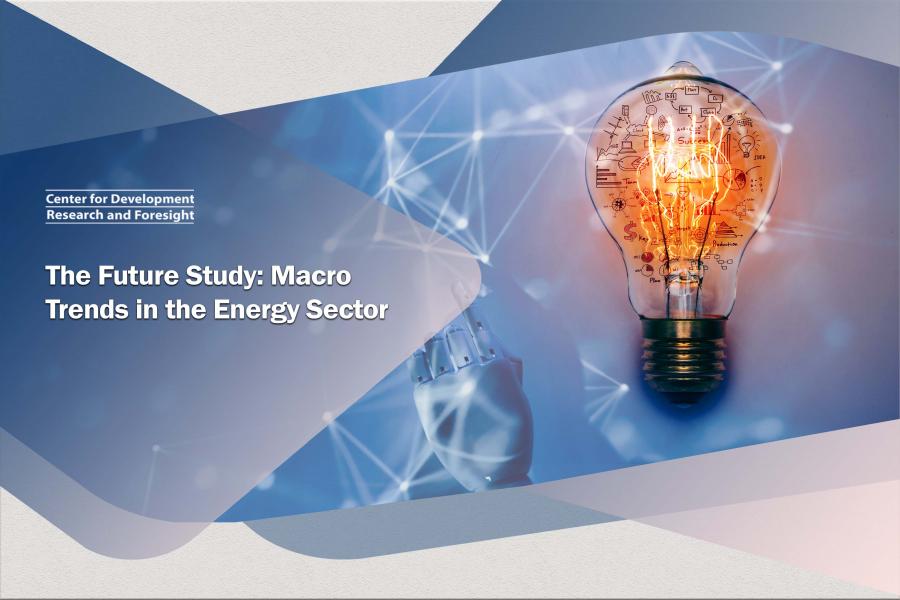
The Future Study: Macro Trends in the Energy Sector
This research delves into the energy trade landscape in global markets, with a particular focus on Iran's position within this dynamic arena. Drawing upon future studies and market analyses, the study examines the projected conditions of the global energy market, evaluating and analyzing key variables such as alternative energy sources to crude oil and natural gas, oil and gas production trends, and price fluctuations of crude oil and natural gas.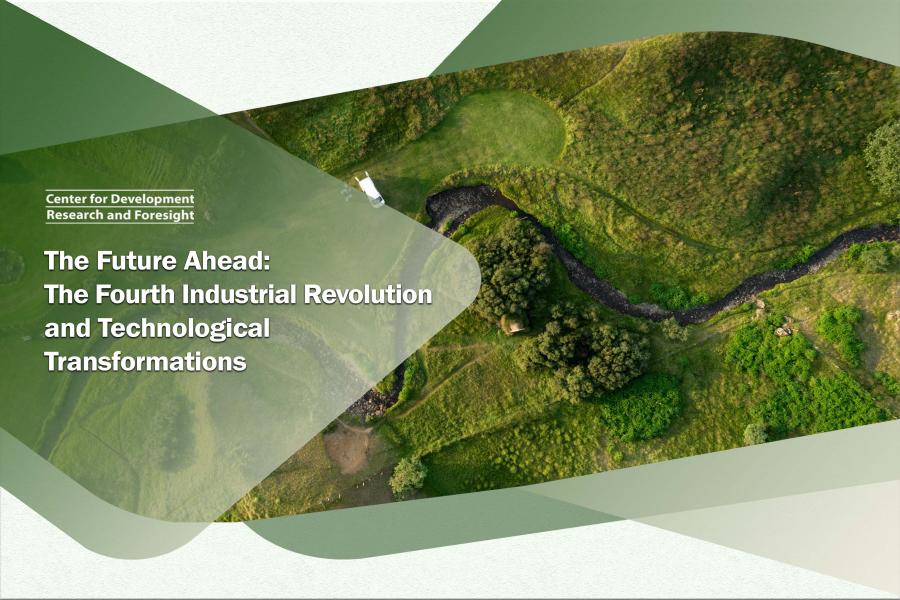
The Future Ahead: The Fourth Industrial Revolution and Technological Transformations
The main objective of this research is to examine and analyze the overall strategic direction of technological developments and to provide an overview of the Fourth Industrial Revolution and the effects of technological developments in selected areas.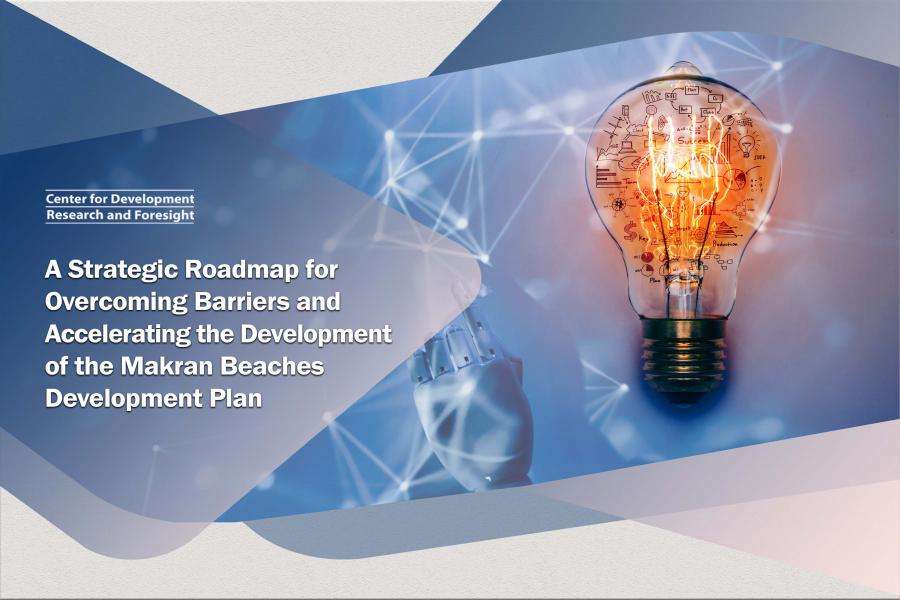
A Strategic Roadmap for Overcoming Barriers and Accelerating the Development of the Makran Beaches Development Plan
The strategic importance of the Makran coast is undeniable, yet its development remains disproportionately low. This disparity is attributed to a combination of internal and external factors, which are analyzed in this research.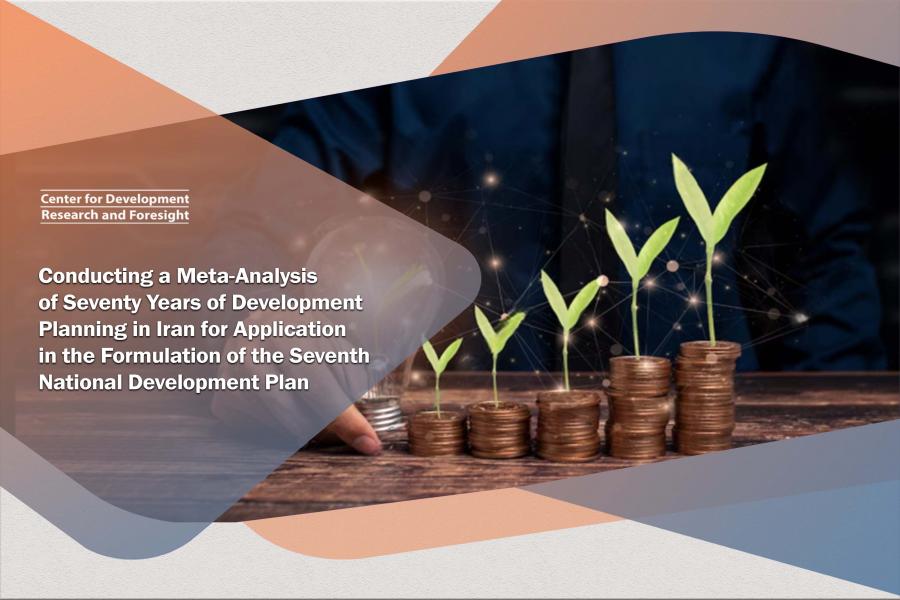
Conducting a Meta-Analysis of Seventy Years of Development Planning in Iran for Application in the Formulation of the Seventh National Development Plan
The development plan in Iran has been shaped by the evolution of the plan itself, following an established planning procedure. A crucial factor for successful planning is the establishment of a shared understanding and consensus on regulations, which serve as a blueprint for the content and structure of the plan among policymakers and planners. Given the importance of this issue, and recognizing that the formulation of regulations will be a pivotal step in advancing the seventh development plan, this study aims to delineate and clarify the regulatory elements of this plan.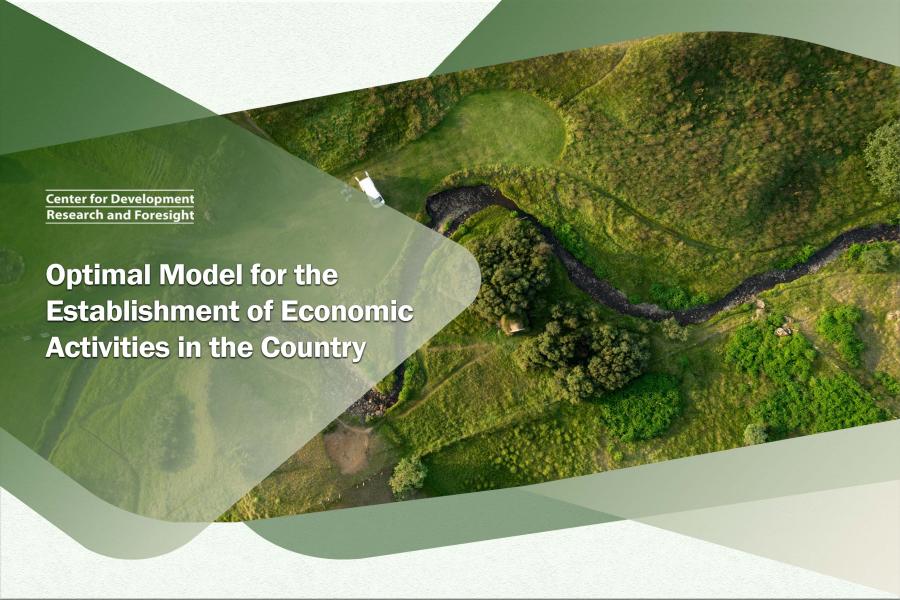
Optimal Model for the Establishment of Economic Activities in the Country
The various dimensions of economic, social, cultural, and environmental factors are essential for achieving sustainable development. Regional imbalances, inequalities, and significant challenges in the development process can arise from focusing only on economic growth in specific regions within a country. Hence, the distribution of economic activities across a territory should consider not only efficiency and economic advantage in different regions, but also other considerations and fundamental principles of spatial development. This study has developed a conceptual framework for determining the distribution of economic activities across a territory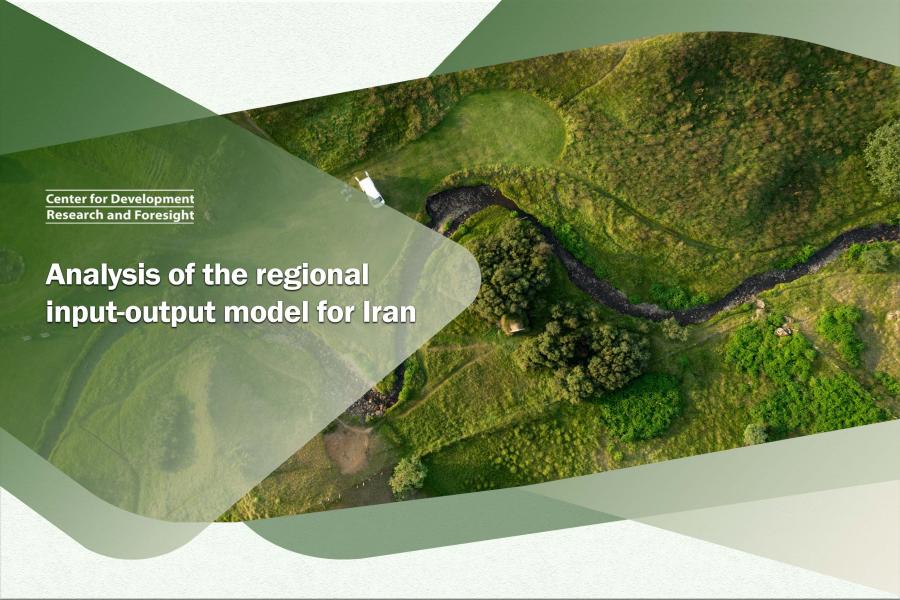
Analysis of the regional input-output model for Iran
In the contemporary global landscape, the evolution of planning systems has instigated a widespread transition towards decentralization and regional planning, predicated on the unique capabilities and advantages inherent to each region. This necessitates the execution of regional analyses employing a diverse array of methodologies. The input-output model has emerged as a prevalent method in regional planning. As one of the most sophisticated techniques in economic accounting, the regional input-output model elucidates the pattern of interaction among economic activities within or across various regions.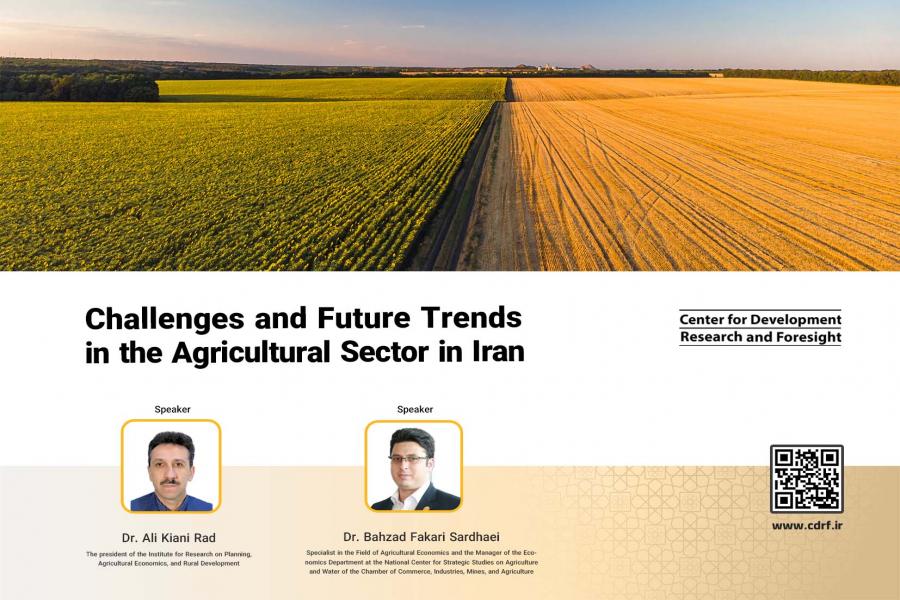
Challenges and Future Trends in the Agricultural Sector in Iran
Agriculture plays a critical role in Iran's economy, providing employment for over 15% of the workforce. While the sector holds immense potential for growth and development, it also faces significant challenges. Identifying these challenges and their impact on the agricultural system is essential for policymakers and stakeholders to formulate effective and targeted policies that address both current and potential issues, thereby enhancing the sector's resilience and enabling it to achieve sustainable development goals.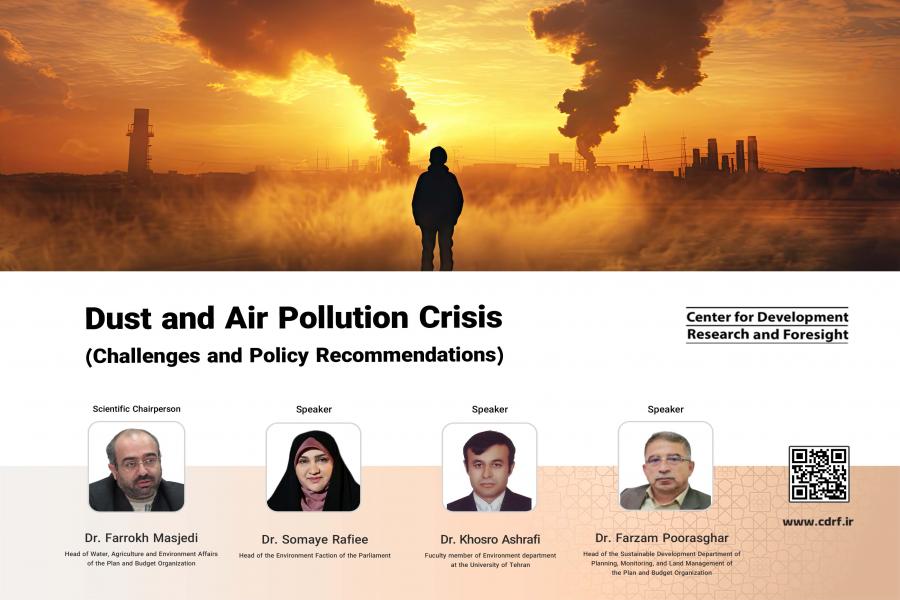
Dust and Air Pollution Crisis
The phenomenon of airborne dust particles as pollutants has detrimental implications for regions exposed to it. The challenges posed by dust and sandstorms are manifold, including weak environmental diplomacy in addressing transboundary environmental risks, overlapping responsibilities of government agencies, the growth of domestic dust emission sources influenced by deficiencies in water resource management, a lack of understanding of the interconnectedness of gradual disasters such as drought, desertification, land degradation, and dust storms, and the adoption of reactive rather than proactive approaches.
Maritime Development is a Key to Boast Economic Growth
The recent conference at the Center for Development Research and Foresight highlighted the growing importance of the maritime economy to the country's future. Experts and officials convened to discuss the potential of the seas and coasts to drive growth, create jobs, and address some of the country's long-term challenges.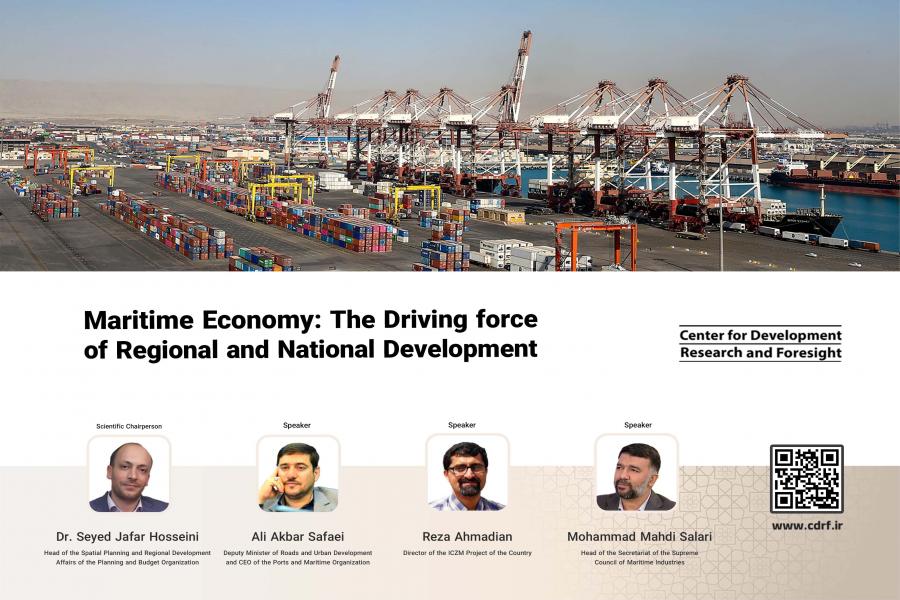
Maritime Development is a Key to Boast Economic Growth
The recent conference at the Center for Development Research and Foresight highlighted the growing importance of the maritime economy to the country's future. Experts and officials convened to discuss the potential of the seas and coasts to drive growth, create jobs, and address some of the country's long-term challenges.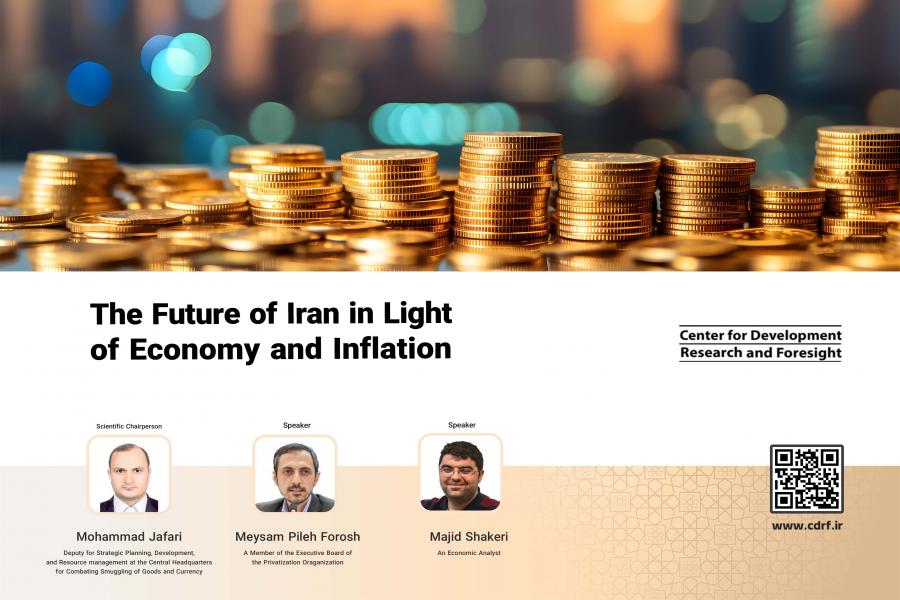
The Future of Iran: From an Economic Perspective
The Center for Development Research and Foresight hosted a pivotal conference titled “The Future of Iran: From an Economic Perspective” with the participation of leading economists and policymakers pointing out the persistent inflation, anemic growth, and deep-seated structural issues.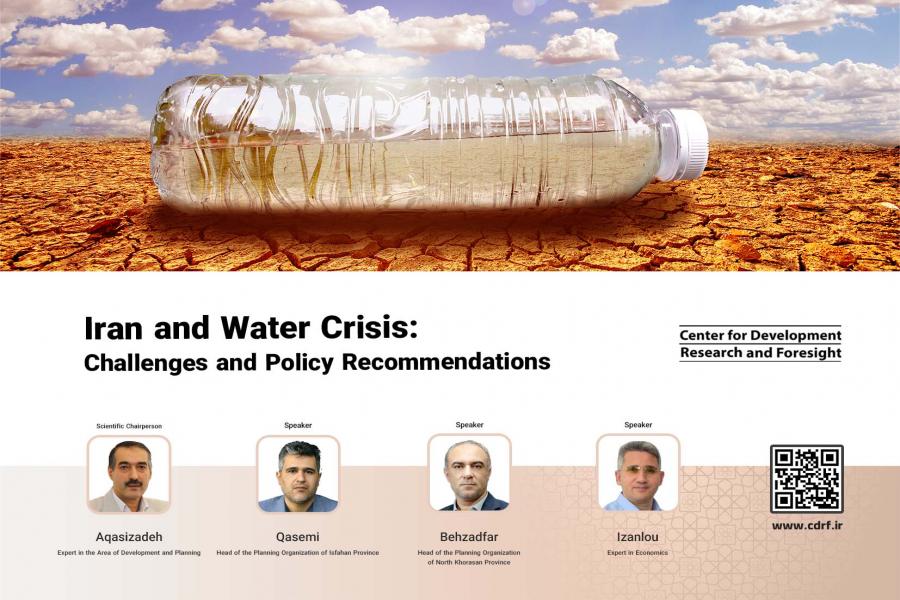
Iran's Water Crisis: A Looming Threat, Experts Warn
Iran's water crisis, long simmering beneath the surface, has reached a boiling point, according to experts who gathered at a conference titled “Iran's Water Crisis: A Looming Threat, Experts Warn” at the Center for Development Research and Foresight. The conference brought together leading figures in planning, development, economics, and water resource management to discuss the challenges and potential solutions to this pressing issue.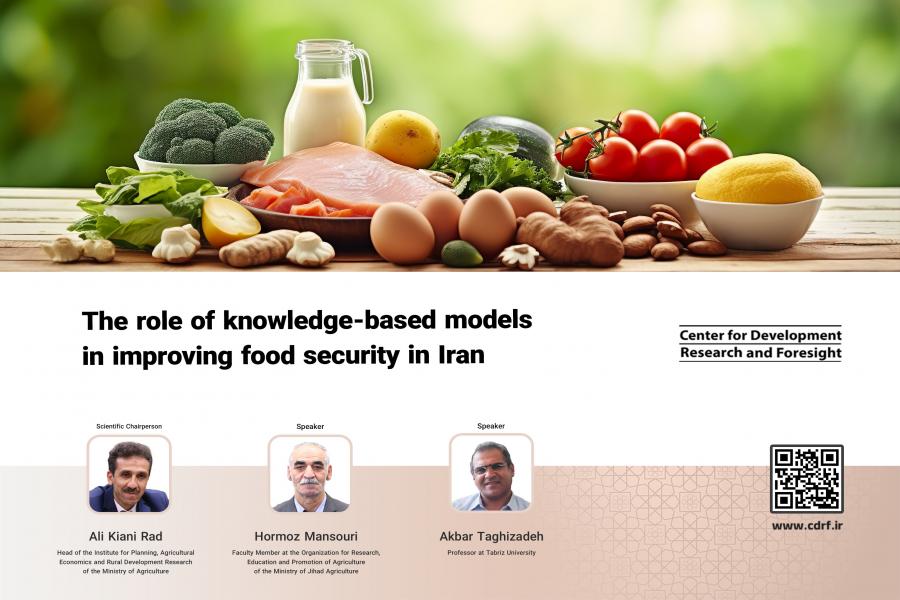
The Role of Knowledge-Based Models in Improving Food Security in Iran
The conference titled “The Role of Knowledge-Based Models in Improving Food Security in Iran” at the Center for Development Research and Foresight brought together experts to discuss the critical issue of food security in the country. The conference highlighted the challenges facing Iran's agricultural sector and explored potential solutions.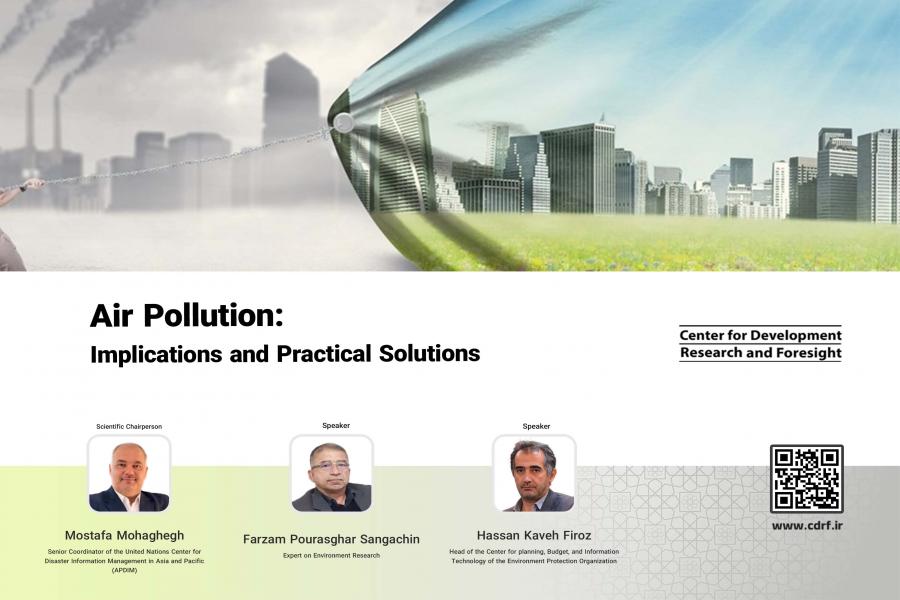
Air Pollution: Challenges and Operational Solutions
Air pollution is a major threat facing the world today, with millions of deaths attributed to it each year, according to experts who convened at the scientific-specialized conference titled "Air Pollution: Challenges and Operational Solutions" at the Center for Development Research and Foresight.
Extraterrestrial Cultivation: Water and Food Security
In a move that could revolutionize its agricultural sector, Iran is setting its sights on extraterrestrial cultivation, aiming to tap into the water and soil resources of other countries to improve food security and expand its agricultural exports. This ambitious plan was discussed at the conference titled “Extraterrestrial Cultivation: Water and Food Security” at the Center for Development Research and Foresight.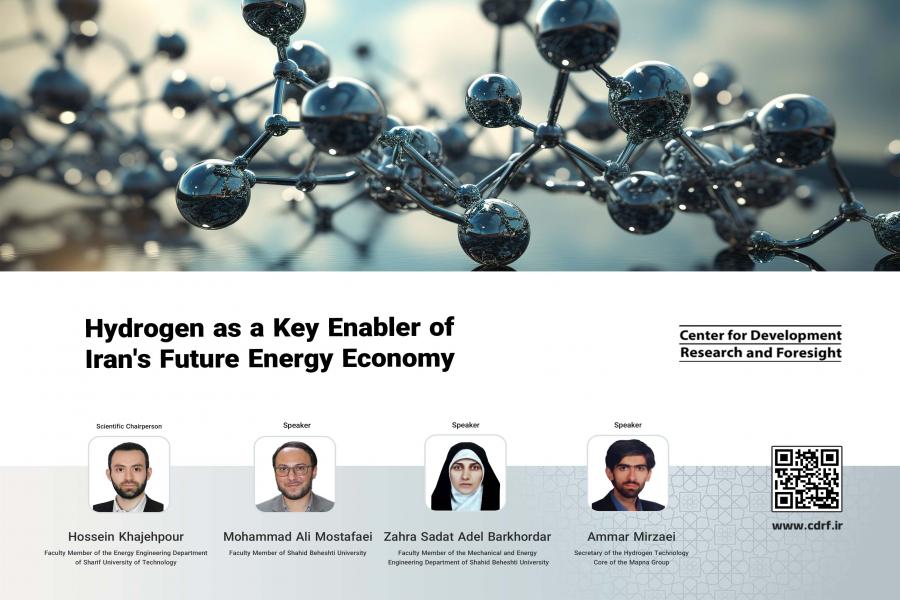
Hydrogen as a Key Enabler of Iran's Future Energy Economy
Could hydrogen be the key to unlocking Iran's clean energy future? That's the question experts tackled at the recent conference titled “Hydrogen as a Key Enabler of Iran's Future Energy Economy” hosted by the Center for Development Research and Foresight (CDRF).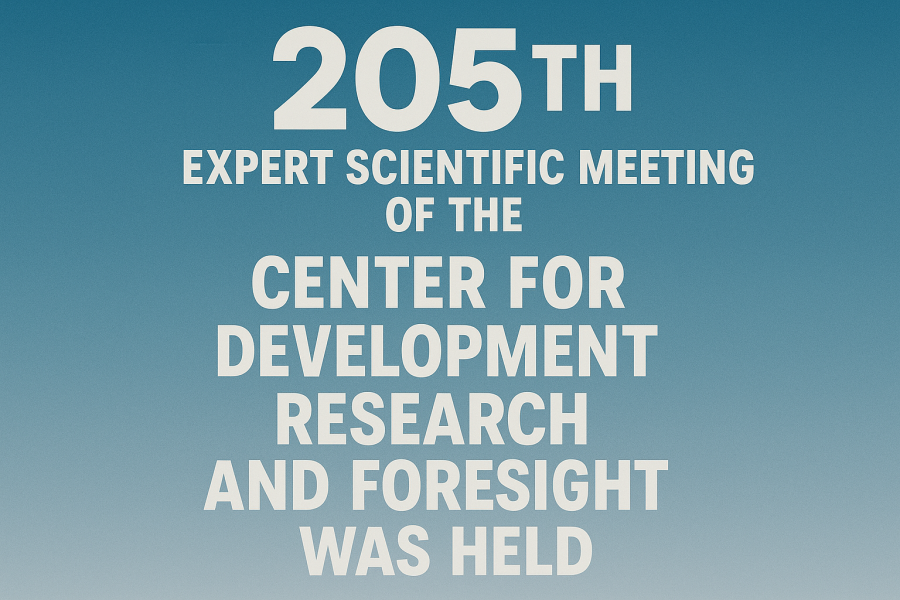
The 205th Expert Scientific Meeting of the Center for Development Research and Foresight (CDRF) was held
According to the Public Relations Office of the CDRF, the 205th Expert Scientific Meeting of the CDRF was held under the title 'Requirements and Challenges of Using the Public-Private Partnership Approach in Investment for Production'.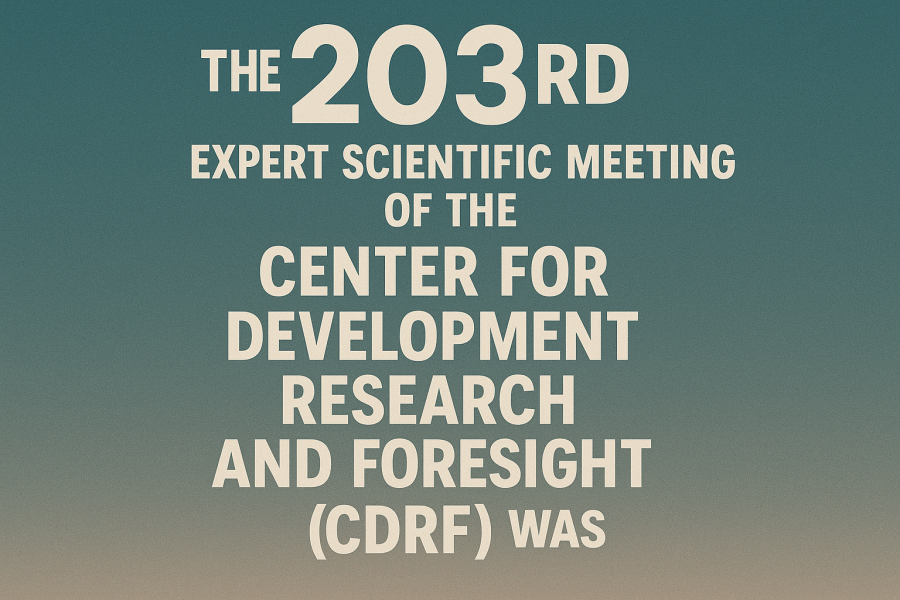
The 203rd Expert Scientific Meeting of the Center for Development Research and Foresight (CDRF) was held.
According to the Public Relations Office of the CDRF, the 203rd expert scientific meeting of the CDRF was held under the title “Analysis and Review of the Budget of State-Owned Enterprises in 1404 (2025-2026).” In this meeting, Mehdi Bagheri, former Head of State-Owned Enterprises, the Civil Servants Pension Fund (CSPF), and Public Institutions Affairs of the Plan and Budget Organization of the Islamic Republic of Iran (PBO), served as the scientific chair of the meeting. Additionally, Hassan Khoshpour, former Head of State-Owned Enterprises Affairs of the PBO, and Mohammad Nasir Arab Nosratabadi, Head of the State-Owned Enterprises and Non-Governmental Public Institutions Group of the PBO, participated as the keynote speakers, presenting their viewpoints.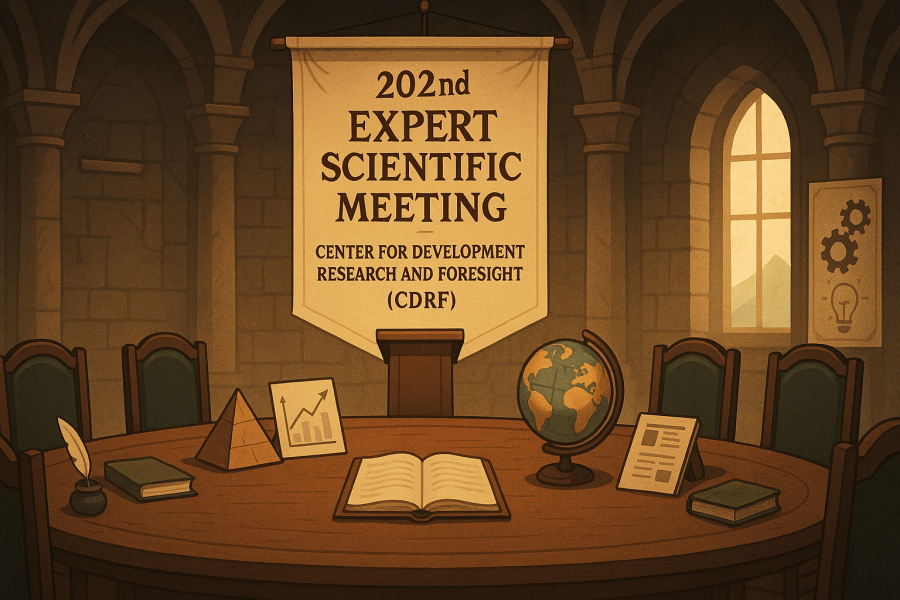
The 202nd Expert Scientific Meeting of the Center for Development Research and Foresight (CDRF) was held.
According to the Public Relations Office of the CDRF, the fifth international meeting and the 202nd expert scientific meeting of the CDRF was held under the title “The Impacts of Land Degradation and Climate Change on Iran's Economic and Social Development.” In this meeting, Mostafa Mohaghegh, Senior Coordinator of the United Nations Asian and Pacific Center for the Development of Disaster Information Management (APDIM), served as the scientific chair of the meeting. In addition, Farzam Pourasghar Sangachin, a researcher and expert in the field of environment, and Sanjay Kumar Srivastava, Chief of Disaster Risk Reduction at the United Nations Economic and Social Commission for Asia and the Pacific (ESCAP), participated as keynote speakers, presenting their viewpoints.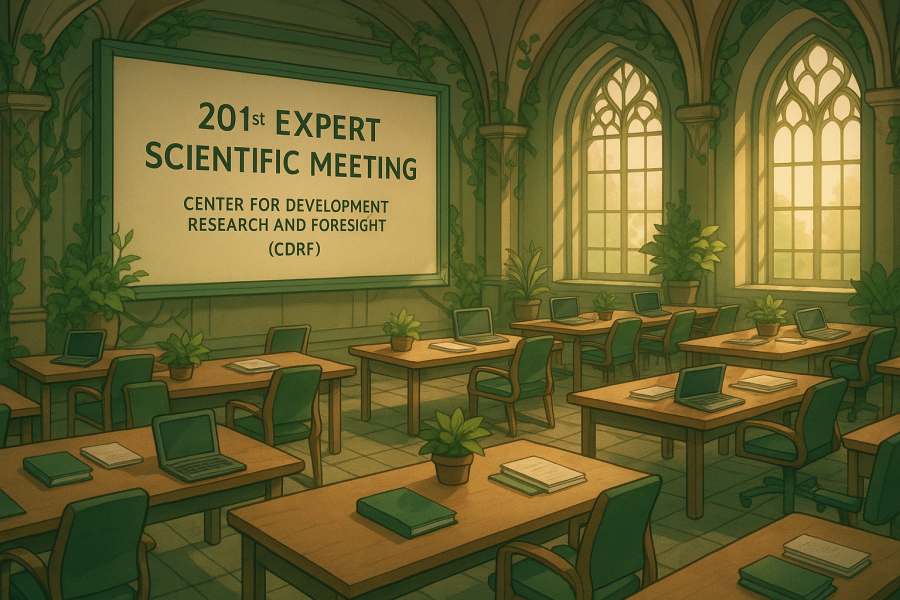
The 201st Expert Scientific Meeting of the Center for Development Research and Foresight (CDRF) was held.
According to the Public Relations Office of the CDRF, the eleventh session of the series entitled “The Future Outlook of Iran” and the 201st meeting of the CDRF was held under the title “A Critical Assessment of the Vision of the Islamic Republic of Iran in the Horizon of 1404 AH.”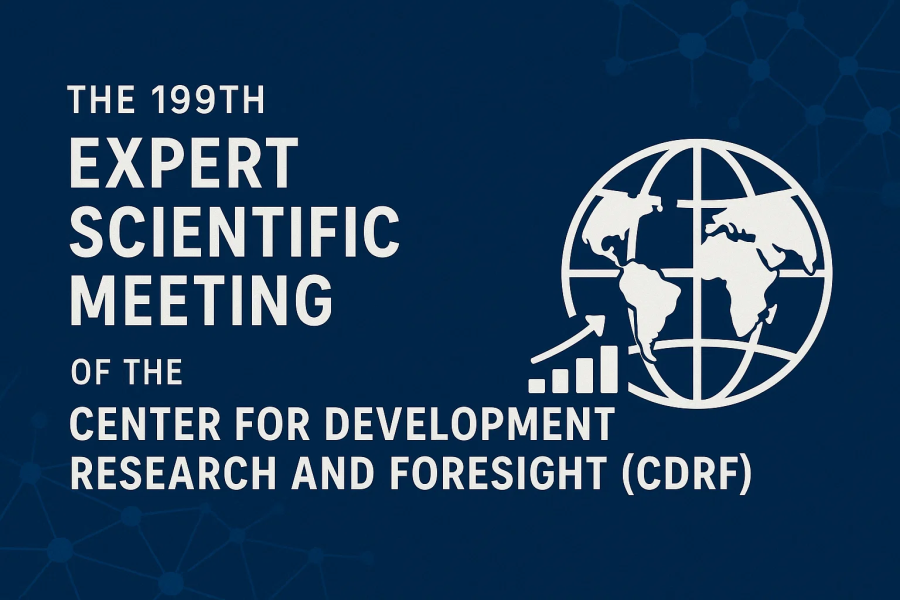
The 199th Expert Scientific Meeting of the Center for Development Research and Foresight (CDRF) was held.
According to the Public Relations Office of the CDRF, the ninth session of the series entitled “The Future Outlook of Iran” and the 199th expert scientific meeting of the CDRF was held under the title “Agriculture in the Vision of the Islamic Republic of Iran.”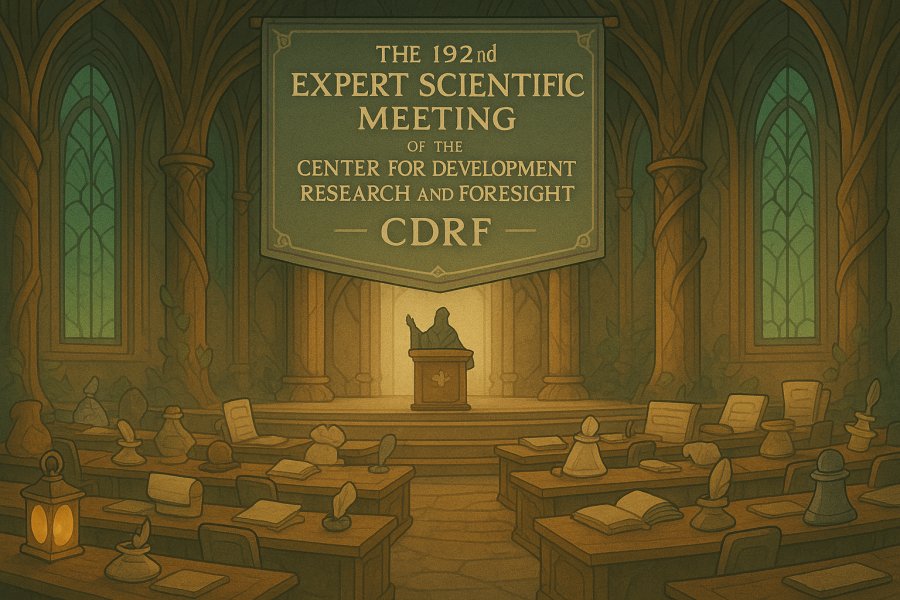
The 192nd Expert Scientific Meeting of the Center for Development Research and Foresight (CDRF) was held.
According to the Public Relations Office of the CDRF, the 192nd Expert Scientific Meeting of the CDRF was held under the title "Wildfires in the Zagros Forests: Challenges and Policy Recommendations." In this meeting, Farrokh Masjedi, Special Representative of the Head of the Plan and Budget Organization of the Islamic Republic of Iran (PBO) for the Preservation and Restoration of the Zagros Forests, served as the scientific chair of the meeting. Additionally, Mehrdad Akbarian, Representative of the Natural Resources and Watershed Management Organization, and Reza Siah Mansour, a faculty member at the Agricultural and Natural Resources Research and Education Center of Lorestan Province, participated as keynote speakers, presenting their viewpoints.
امروز : سه شنبه، ۲۸ بهمن ۱۴۰۴

